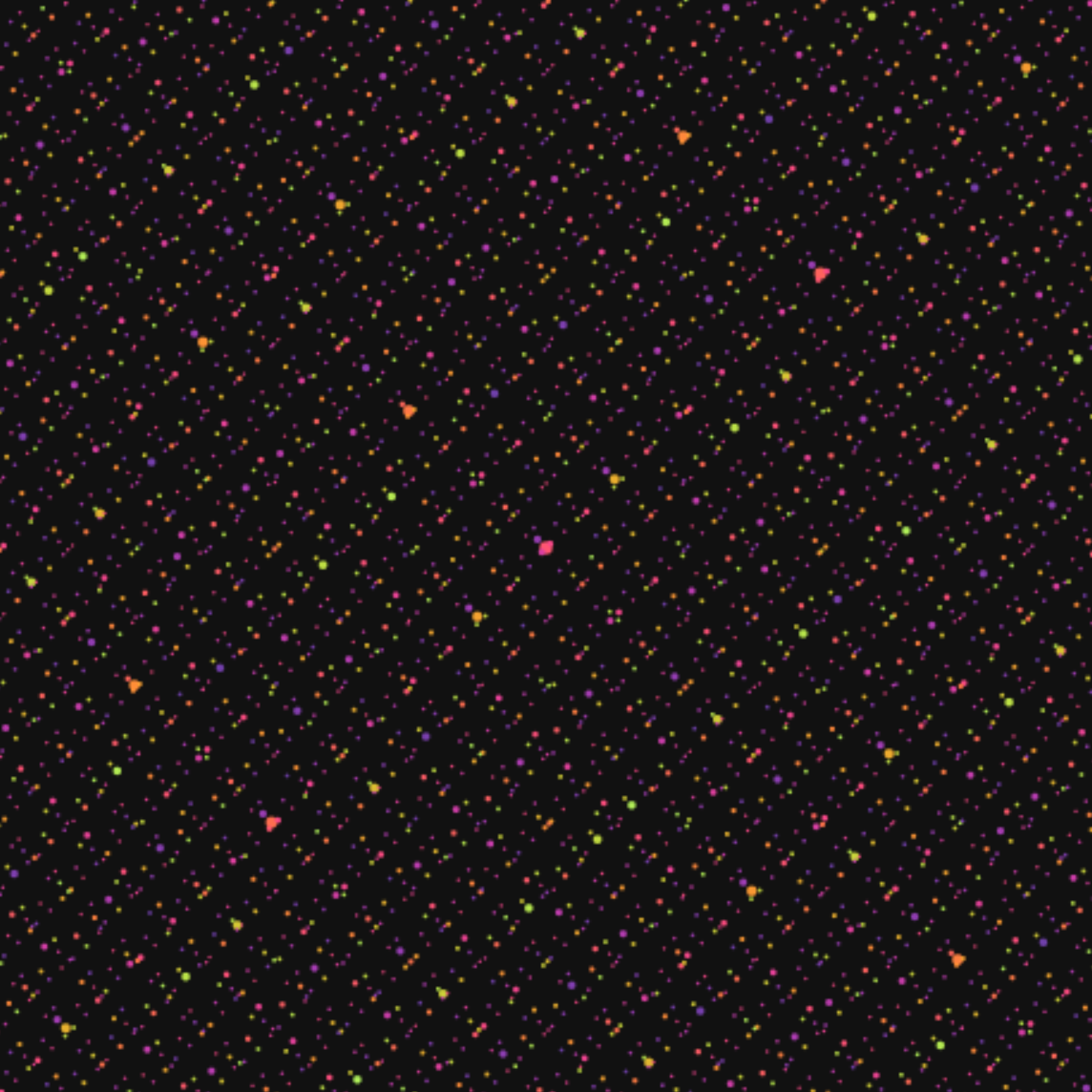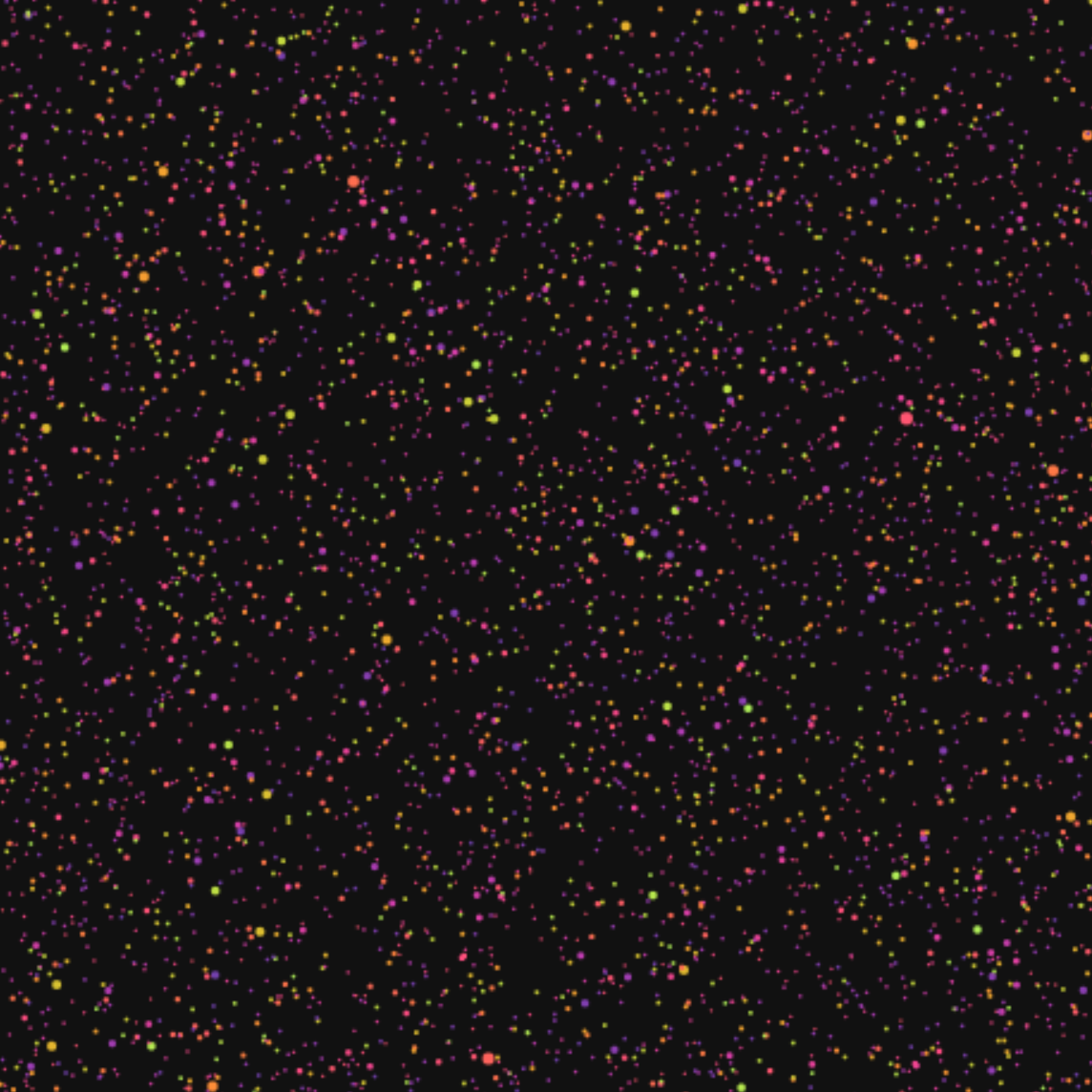# sobol

[](https://docs.rs/sobol)


[](https://coveralls.io/github/Wsiegenthaler/sobol-rs?branch=master)
[](https://opensource.org/licenses/BSD-3-Clause)
*A Sobol sequence generator for Rust*
This crate provides Sobol low-discrepancy quasirandom sequences which are useful for integration and other tasks. The sequence can cover a domain evenly with as little as a few points and will continue to progressively fill the space as more points are added.
For efficiency, *sobol* employs the recursive variant of the gray code optimization proposed by *Antonov-Saleev*.
Below are examples of 2-dimensional points drawn from Sobol and Uniform generators respectively. See an animated visualization [here](https://wsiegenthaler.github.io/lobos/web-example.html).


## Usage
```shell
cargo install sobol
```
Print the first 100 points from a 3-dimensional sequence:
```rust
extern crate sobol;
use sobol::Sobol;
use sobol::params::JoeKuoD6;
fn main() {
let params = JoeKuoD6::minimal();
let seq = Sobol::::new(3, ¶ms);
for point in seq.take(100) {
println!("{:?}", point);
}
}
```
In this example each component of the sequence is a 32-bit float but *sobol* also supports Rust's other numeric primitives. Floating point sequences span the unit hypercube (i.e. `[0,1)`) while integer valued sequences span the natural domain of the selected type. For example, `u16` typed sequences will have components between 0 and 65,536.
## Initialization Values
Initialization values (aka "parameters") supporting up to 21,201 dimensions are provided courtesy of Stephen Joe and Frances Kuo ([source](https://web.maths.unsw.edu.au/~fkuo/sobol/)) and are accessible via `sobol::params::JoeKuoD6`. Custom initialization values can be used by implementing the `sobol::SobolParams` trait.
If imported into your project, the provided `JoeKuoD6` parameters are automatically embedded into your project binary. To reduce the amount of data added to your project, `JoeKuoD6` provides three otherwise identical parameter sets which can be selected from according to the dimensionality required by your sequences:
| Source | Supported Dims | Approx. Size |
| ------ | -------------- | ------------ |
| `JoeKuoD6::minimal()` | 100 | 1kb |
| `JoeKuoD6::standard()` | 1,000 | 20kb |
| `JoeKuoD6::extended()` | 21,201 | 690kb |
## See also
* [lobos](https://github.com/wsiegenthaler/lobos) - A Sobol sequence generator for Scala and Javascript
## References
* Joe, Stephen, and Frances Y. Kuo. ["Notes on Generating Sobol Sequences."](https://web.maths.unsw.edu.au/~fkuo/sobol/joe-kuo-notes.pdf) (n.d.): n. pag. Aug. 2008. Web.
* "[Sobol Sequence.](https://en.wikipedia.org/wiki/Sobol_sequence)" Wikipedia. Wikimedia Foundation, n.d. Web. 25 Feb. 2015.
## License
Everything in this repo is BSD License unless otherwise specified
sobol-rs (c) 2020 Weston Siegenthaler



